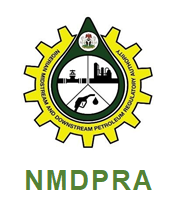Oil & Gas
Nigeria’s Gas Reserve hits 209.5 TCF – NMDPRA

The Nigerian Midstream and Downstream Petroleum Regulatory Authority (NMDPRA) says Nigeria’s proven natural gas reserve has risen to 209.5 Trillion Cubic Feet (TCF) as at Jan. 1, 2022.
The News Agency of Nigeria (NAN) reports that Mr Farouk Ahmed, Chief Executive, NMDPRA, said this on Wednesday at the 2022 Nigeria International Energy Summit (NIES) in Abuja.
The new figure represents a major increase of 2.
97 TCF in proven natural gas reserves representing 1.42 percentage increase from the 206.53 TCF recorded on Jan. 1, 2021.Ahmed, represented by Mr Ogbugo Ukoha, Executive Director, Distribution Systems, Storage and Retailing Infrastructure, NMDPRA, said the Nigerian economy had been projected to experience a growth of 2.
1 to 2.5 per cent through 2022.He said the Gross Domestic Product (GDP) would expand between 2.9 to 3.5 per cent as projected by the World Bank and the International Monetary Fund, adding that this progress would be driven by energy.
Ahmed said: “Thankfully, Nigeria is endowed with enormous petroleum resources currently put at 37 billion Barrels of Crude oil reserves and 209.5 TCF of Natural Gas reserves as at January 2022.
“These resource size puts Nigeria at an enviable position within the comity of global hydrocarbon producers.
“Even in this era of global energy transition the oil and gas sector still remains pivotal to the Nigerian economy since it provides the needed cash flow for the functioning of other sectors of the economy but for how long?”
According to him, with the global push for energy transition, Nigeria is racing against time to derive maximum value from its hydrocarbon resource and secure its energy future.
He said there was need to vigorously contemplate Nigeria’s energy strategies, which was a key tool for economic liberation and national development taking into advisement the shift in demand and clamour for cleaner fuels.
Ahmed said: “It is imperative that going forward all stakeholders must deliberately adopt strategies that embolden and underpin these three core principles.
“Adoption of low carbon technologies across all operations in the oil and gas value chain, deepening and penetration of natural gas utilisation domestically to increase energy sufficiency and reduce energy poverty and invest conscientiously in cleaner fuels and renewables.”
He said the authority was committed to creating an enabling environment for investments in the midstream and downstream space by encouraging industry participants through its regulatory service instruments. (NAN)
Oil & Gas
NCDMB set to Attain 100% Local Content in Africa

By Eddy Ochigbo
The Nigerian Content Development Management Board (NCDMB) has reaffirmed its determination to increase the current from 56% to100% local content in Africa between now and next decade, to align with President Ahmed Tinubu’s “Nigeria First” policy, aimed at boosting local production and reducing dependence on imports in critical sectors of national economy.
Director Corporate Services NCDMB, Dr Abdulmalik Halilu who drop the hint during the week at a capacity building workshop for media stakeholders in Abuja, disclosed that NCDMB, was in good stead to attain 100% Local content in less than no time due to impactful steps being taken by the board.
Innovative steps being by the board, be said, were put in place under the leadership of Executive Secretary, Engr. Felix Omatsola Ogbe. While hinging the milestones attained by the board on the establishment of the Nigerian Oil and Gas Industry Development Content Act (NOGICD) – a sole agency of the federal government responsible for driving Nigerian content in the oil and gas industry – Halilu urged Oil and Gas Correspondents to place high premium on the core operations of NCDMB, rather than their day to day reportage of policy matters.The media capacity building workshop themed: The Role of Media and Communications in Sustaining Nigerian Content Development”, challenged the media to deploy its expertise and professionalism to boost Nigeria’s sustained campaign in championing local content development in Africa.
“The media should to do more in the reportage of activities of the board by moving from reporting policy matters, and throw more light on core operations of the Nigerian content performance in the oil and gas industry”, he volunteered.
Meanwhile, NCDMB”s move is to ensure that for every N100 spent in the industry by operators and service companies, N56 is now retained in-country in terms of value addition local assets, goods, expertise to target 70 per cent local content by 2027. The workshop stressed the need for the media to interrogate the board’s activities and keep Nigerians abreast of the ongoing silent revolution in nation’s local content trajectory.
On his part, Dr Obinna Ezeobi, General Manager, Corporate Services, reiterated that the Nigerian content has become so widespread the world over that a good number of African countries are now seeking ways to optimise value from their oil and gas resources, turning to Nigeria’s local implementation as a case study.
Earlier, Mr Azubuike Ishiekwene, Editor-in-Chief of Leadership Newspapers, who delivered a paper on why “Good Journalism is not Enough: Creating Sustainable Income from your Content in Digital Age”, maintained that good journalism is no longer in vogue because of the collapse of traditional newsroom revenue and the under payment and casualisation of Journalists, especially beat reporters. He reasoned that the Journalist as knowledge worker, a trusted interpreter, public educator and a market signaler must live above board because digital age did kill journalism, it killed dependency.
By and large, the media capacity building workshop, among things touched on:
- Formulation and implementation of policies and monitoring its socioeconomic impact;
- Provision of the economic and social capital, necessary for the growth of industries; and
- Provision of enabling business environment to support production and consumption of goods and services by local supply chain.
Oil & Gas
NCDMB Oil, Gas Parks Near Completion, Set for 2026 Inauguration

The Nigerian Content Development and Monitoring Board said its Nigerian Oil and Gas Parks Scheme, established to boost local manufacturing through shared infrastructure and embedded power solutions, would be inaugurated in 2026.
Abdulmalik Halilu, spokesman for NCDMB, disclosed this on Monday in Abuja while presenting an overview of the Board’s mandate and achievements at a capacity-building workshop for the media.
NCDMB established the NOGAPS with the primary aim of domiciling and domesticating oil and gas activities in-country by facilitating local manufacturing.
The scheme is a key part of the NCDMB’s 10-year Strategic Roadmap to increase Nigerian content in the industry to 70 per cent by 2027.
Halilu said eight oil and gas industrial parks, covering Bayelsa, Cross River, Akwa Ibom, Imo, Delta, Ondo, Abia, and Edo, were being established.
“NOGAPS in Bayelsa and Cross River states are at 90 per cent completion and due for commissioning in 2026,’’ he said
Mr Halilu said the parks would provide infrastructure and services plots for manufacturing outfits, adding that its local content policy had evolved into a powerful tool for industrialisation, job creation and sustainable economic growth in the sector.
He said local content was designed to stop capital flight and reposition the oil and gas industry as a catalyst for national development.
According to him, exporting oil and gas services outside Nigeria amounted to exporting jobs, capital and industrialisation opportunities, a situation the Federal Government deliberately moved to reverse through local content policies.
He said the success of early local content initiatives led to the enactment of the Nigerian Oil and Gas Industry Content Development Act, which institutionalised the policy and insulated it from political changes.
“The philosophy of local content is simple: what can be competitively produced in Nigeria should be produced in Nigeria, without compromising standards, pricing or project timelines,” Halilu said.
He explained that the NOGICD Act assigns NCDMB two core responsibilities, namely building indigenous capacity and enforcing compliance with the Act, which contains schedules and nearly 300 performance targets.
Highlighting achievements, he cited the Nigeria LNG Train 7 project as a major success story, with over 93 per cent Nigerian workforce participation, engagement of 1,400 vendors, and significant domiciliation of fabrication, engineering and manufacturing activities.
He said capacities developed for oil and gas projects now serve other sectors such as power and construction, reinforcing the sector’s multiplier effect on the economy.
On financing, he said NCDMB had deployed funds from the Nigerian Content Development Fund through intervention programmes, including single-digit interest loans for indigenous companies, asset-acquisition financing, and working capital support introduced during the COVID-19 pandemic.
Halilu also said that NCDMB had fully automated its processes, eliminating physical visits for certifications and approvals, and placing the Board among Nigeria’s top-performing agencies in ease-of-doing-business rankings.
Oil & Gas
Nigeria Tops W’Africa’s Crude Refining as Other Countries Stage Competition

Nigeria is expanding its crude refining footprint in the face of apparent asset acquisition and development by other countries in West Africa.
West Africa is developing into a regional refining and trading hub, backed by state authorities which aims to achieve greater refined product self-sufficiency and export capacity.
The extent of further change in 2026 will be defined by the fortunes of existing and fledgling refining projects, including Nigeria’s 650,000 barrels a at (b/d)Dangote and a clutch of smaller plants.
The Dangote refinery continues to upend regional and global refined product markets, reducing west Africa’s reliance on imports. Since Premium Motor Spirit (PMS) also called petrol production began at the refinery in September 2024, Nigeria the region’s largest petrol importer has seen net petrol imports steadily fall to a historic low of 40,000 b/d in September this year, from 332,000 b/d just a year earlier, Kpler data show.
Meanwhile, Nigeria’s net middle distillate exports hit a record 145,000 b/d in July, up from 82,000 b/d on the year, and the country has broadly been a net exporter of these products since May 2024, according to Argus media.
As a result, Nigeria and West Africa as a whole are pulling on considerably less gasoline and middle distillates such as petrol and jet fuel.
Year-to-date, the region spanning Mauritania to Angola has seen petrol imports drop by a quarter on the year to 337,000 b/d, while jet imports have collapsed to 4,000 b/d, both the lowest since at least 2016 when Kpler records began. West African petrol imports have fallen to a five-year low of 162,000 b/d.
Dangote has inarguably transformed regional oil product market dynamics, having proven robust through multiple bouts of maintenance works, and there is room for it to capture more of the domestic petrol market in the year ahead.
The same cannot be said for Nigerian state-owned NNPC’s refining assets.
The company restarted a 60,000 b/d section of the 210,000 b/d Port Harcourt refinery late in 2024 only to shut it again in May this year, while the 125,000 b/d Warri plant restarted in December 2024 before going offline the following month.
This underscores the challenges of modernizing or rehabilitating long-mothballed facilities along the West African coast.
Refiners in other West African countries are expanding their offerings to regional consumers, further eroding market share previously claimed by European traders.
Angola’s 30,000 b/d Cabinda refinery is up and running producing mainly petrol and jet fuel for the domestic market from its first phase.
This is likely to curb Angolan middle distillate import demand, with the refinery a 90:10 joint venture between UK-based Gemcorp and state-owned Sonangol — meeting 10 per cent of domestic demand.
Cabinda’s second phase will add gasoline production, but not until around 2028.
Angola imported 20,000 b/d of petrol in January-August, according to Kpler, around 40,000 b/d of diesel and gasoil, and negligible amounts of jet fuel.
In Ghana, the 45,000 b/d Tema Oil Refinery (TOR) continues works to restore nameplate capacity.
The privately-owned 120,000 b/d Sentuo Oil Refinery and the country’s smaller Platon and Akwaaba modular refineries operate sporadically. TOR’s return may be a surprise for 2026, with the operator reporting in October that turnaround activities were taking place “aimed at preparing the refinery for a safe and efficient restart”.
The refinery’s prospects look stronger than those of Ghana’s Petroleum Hub Development Corporation (PDHC), which appears to have postponed construction of the first three planned 300,000 b/d refineries since John Mahama returned to power in January for a non-consecutive second term.
The PDHC delays highlight the long lead times typical for large-scale refining projects. Dangote itself took nearly a decade to move from its first loan agreement to eventual start-up.
Other projects announced this year are unlikely to advance in 2026, making operating or near-complete refineries in Nigeria, Angola and Ghana critical for the region’s push towards a bigger role in the downstream market.




















